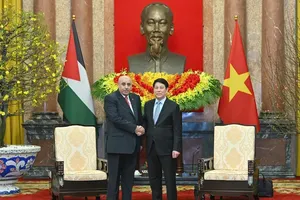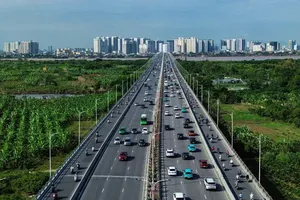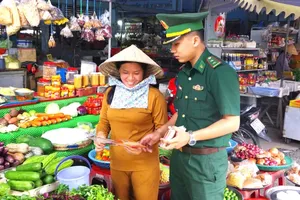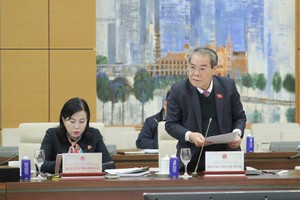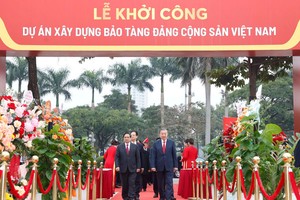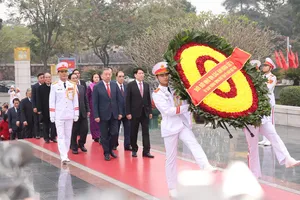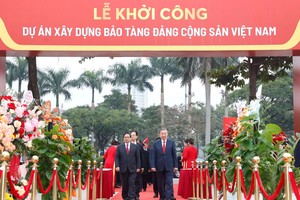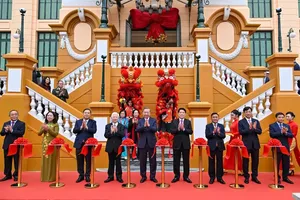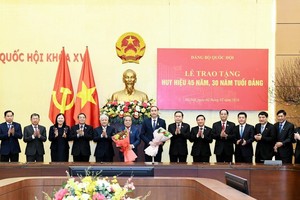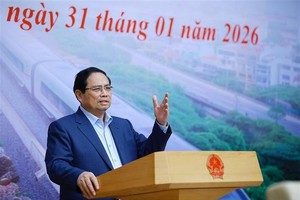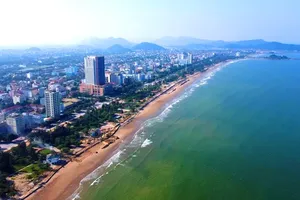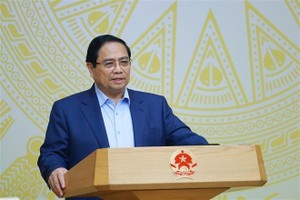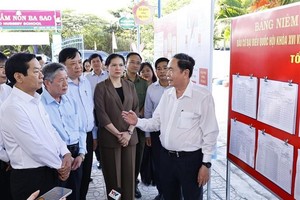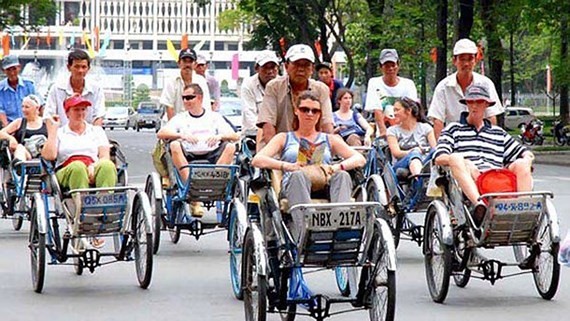 Illustrative image. (Photo: SGGP)
Illustrative image. (Photo: SGGP)
At a dialogue about administrative procedures on November 4, Maj. Gen. Pham Dang Khoa, Director of the MPS’s Immigration Department, said administrative reforms in immigration management have been carried out in a proactive, strong, and serious manner to create favorable conditions for all Vietnamese citizens to exit from and enter the country, and for foreigners to come to Vietnam for tourism, investment, and trading purposes.
Besides, the reforms are also meant to improve the state management of exit and entry, and opportunely detect and fight law violations so as to help safeguard national security, he noted.
Compared to many other countries, Vietnam’s visa procedures are simple and quick, and can be handled in different forms to meet foreigners’ demand, the official went on.
So far, Vietnam has expanded e-visa granting to citizens in 80 countries and territories. It has also unilaterally exempted visa for citizens of 13 countries, and carried out bilateral exemption for those in 12 other countries.
The reception and settlement of exit and entry procedures have continued to be reformed and decentralized, especially the application of online public services at Level 4 - the highest level - in 2022 under the Prime Minister and MPS Minister’s direction.
Khoa added the Immigration Department will press on with IT application in visa granting for foreigners to attract more foreign investors and tourists to Vietnam.
With regard to the new passport version, the official noted that the MPS has granted the new passport since July 1. However, from July 27, some European countries decided to suspend granting visa onto the new passport version as information about the “place of birth” is absent. This issue has affected Vietnamese citizens’ entry into the Schengen countries.
At the request of the National Assembly Standing Committee, the Government ordered the MPS and Vietnam’s overseas representative bodies to include the “place of birth” in passports’ appendixes, which has been accepted by those countries.
To ensure rights and legitimate interests of Vietnamese citizens, the Immigration Department has proposed authorities supplement the birthplace information to exit and entry papers of Vietnamese citizens, according to Khoa.
Besides, the reforms are also meant to improve the state management of exit and entry, and opportunely detect and fight law violations so as to help safeguard national security, he noted.
Compared to many other countries, Vietnam’s visa procedures are simple and quick, and can be handled in different forms to meet foreigners’ demand, the official went on.
So far, Vietnam has expanded e-visa granting to citizens in 80 countries and territories. It has also unilaterally exempted visa for citizens of 13 countries, and carried out bilateral exemption for those in 12 other countries.
The reception and settlement of exit and entry procedures have continued to be reformed and decentralized, especially the application of online public services at Level 4 - the highest level - in 2022 under the Prime Minister and MPS Minister’s direction.
Khoa added the Immigration Department will press on with IT application in visa granting for foreigners to attract more foreign investors and tourists to Vietnam.
With regard to the new passport version, the official noted that the MPS has granted the new passport since July 1. However, from July 27, some European countries decided to suspend granting visa onto the new passport version as information about the “place of birth” is absent. This issue has affected Vietnamese citizens’ entry into the Schengen countries.
At the request of the National Assembly Standing Committee, the Government ordered the MPS and Vietnam’s overseas representative bodies to include the “place of birth” in passports’ appendixes, which has been accepted by those countries.
To ensure rights and legitimate interests of Vietnamese citizens, the Immigration Department has proposed authorities supplement the birthplace information to exit and entry papers of Vietnamese citizens, according to Khoa.
